7.30am and I am at MAJORDA train station not far from the beach resort. It takes a while to buy a ticket as the same man selling them is also answering the phone, keeping a log and controlling the points and signals on this single line stretch. Fork out 10/-for the journey to Chandor about 20kms to the east. Train arrives 2 minutes late and clamber up the short vertical ladder into 2nd class carriage. No glass just metal bars which keeps it cool. Not really that much worse than Exmouth to Exeter in rush hour. The first house, Menezes–Braganza is in the throes of being used as a film set so there are bods carrying kit around and cables all over the floor. The main junction box for the lighting is a wonder of unHSE.
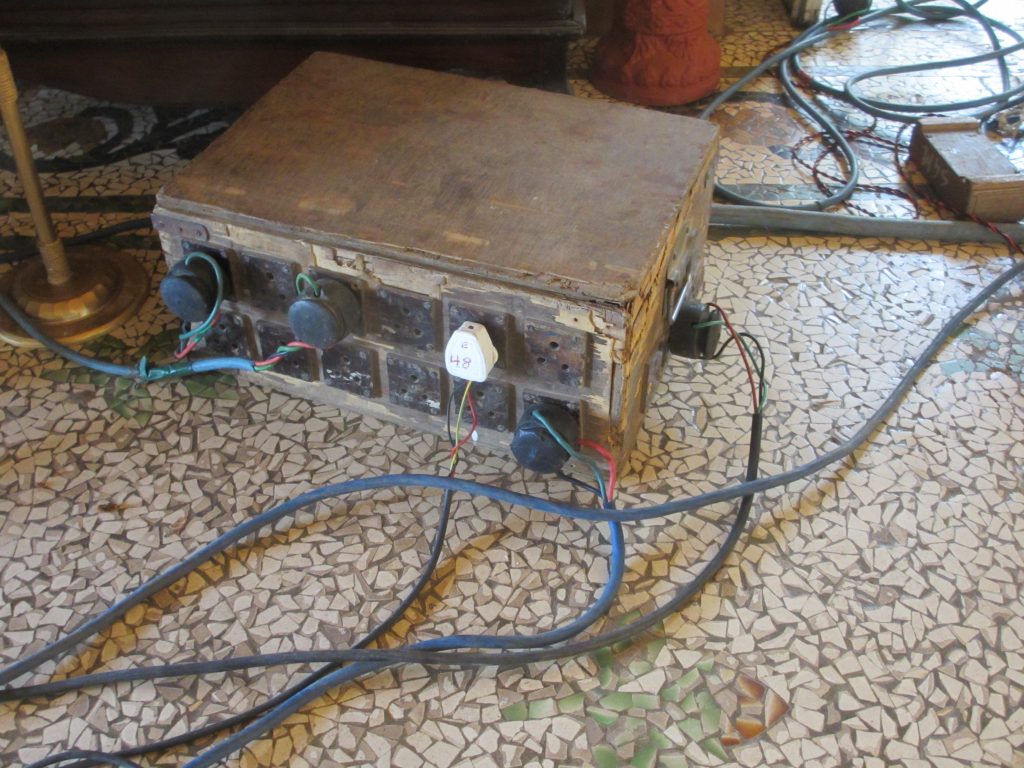
Will the house survive?
The current owner, an unmarried son in his fifties, introduces me to his mother and disappears to get washed and dressed. She is resting in a steamer chair with very long arm rests. The idea, she explains, is to put your feet up on them to relax. The men, that is. For the ladies it would be more akin to a gynae exam.
She has the sad aloof air of noblesse in reduced circumstances straight out of a Russian novel.
The dining room has been set up by props to resemble 19th century splendour, so is very different from the rest which is cluttered bits and pieces. The guide is perfunctory on detail though you can imagine how it would have been in its heighday. They struggle to find the income to maintain it and there is no National Trust India.
Teakwood furniture in Indo-portuguesestyle is heavy and hard. No mention is made of the other cousins’ branch of the family who live in the section adjoining. The sense of faded splendour is overwhelming and little prospect that he will be producing a new generation.
A ten minute walk out of the village past open fields reveals a variety of birds in the paddies.
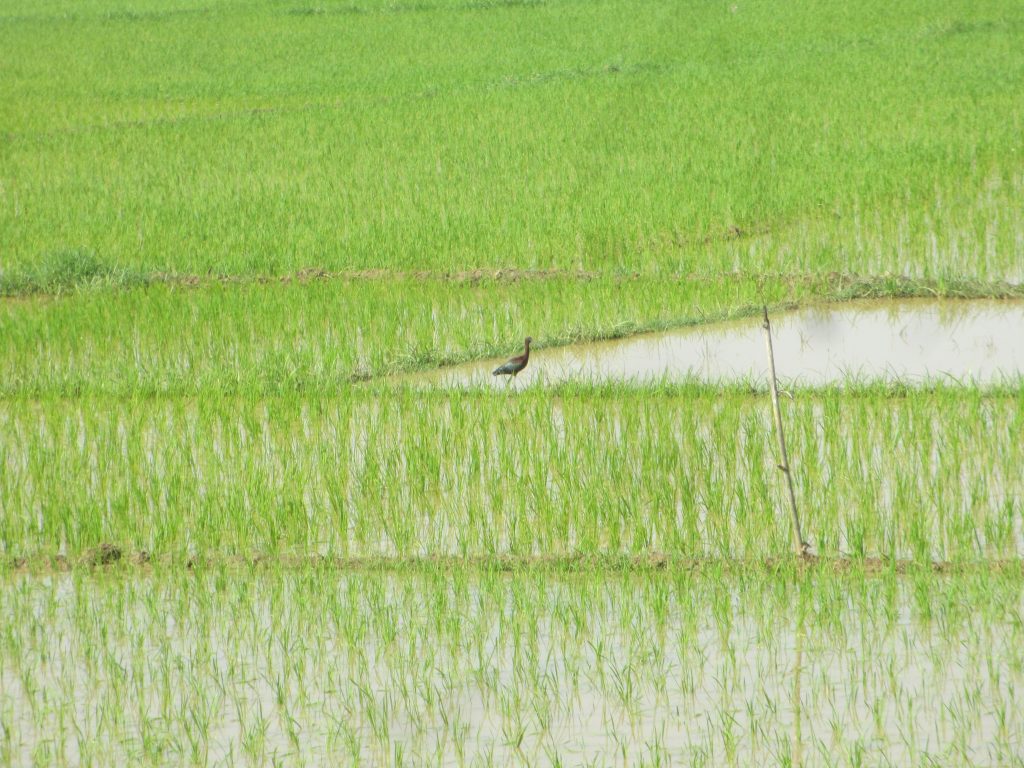
The next house on first appearance is much less imposing but does seem older. A diminutive figure is by the old wooden doors and greets me enthusiastically. We go in to a darkened space that is bare and unlit. He points to a 2″ hole in the wall–“gunport”. The house dates to the 16th century when roving bands of brigands roamed the countryside. He is 15th generation living in the house. He is called Rajiv because he was born after liberation from Portugal.
His family were landowners and had rents from all the tenant farmers. Photographs of stern men hang on the wall. Z
The ballroom is a thing of splendour, huge chandeliers from Belgium and a sprung wooden floor. When was it last used for a ball? My mother’s wedding. We can’t do it now as the family is too big. He is the figure by the door on the left.
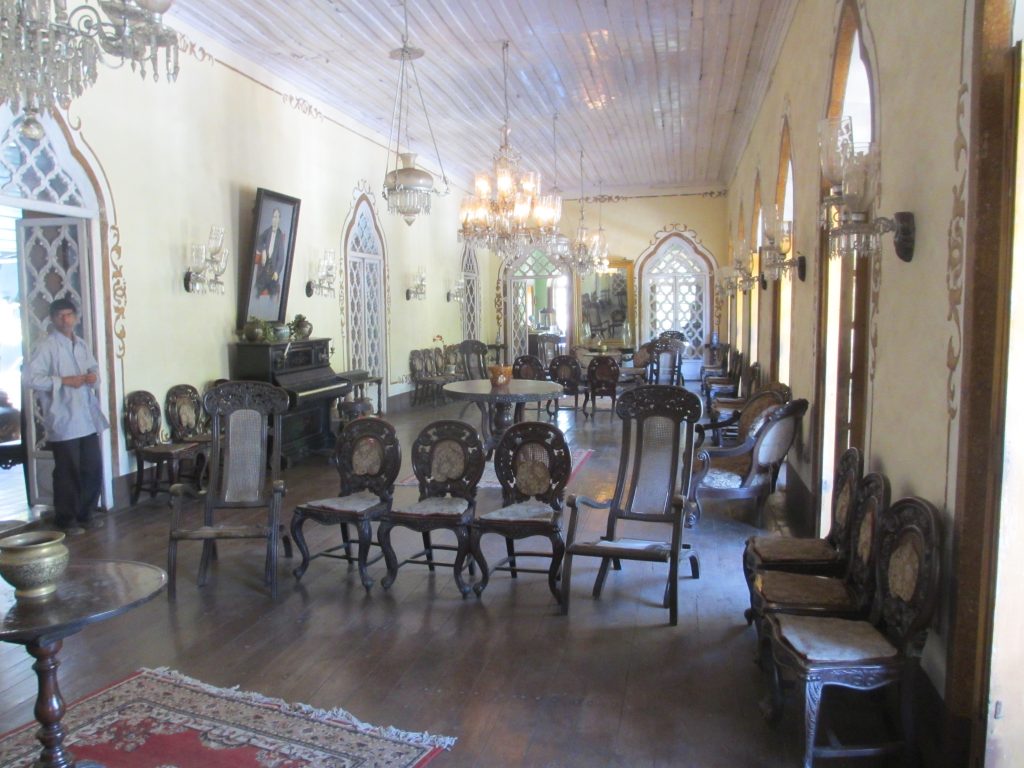
The piano is a good make and he offers to let me play it. Even if I knew how, the few keys I strike tell me it has not been near a piano tuner for many years.
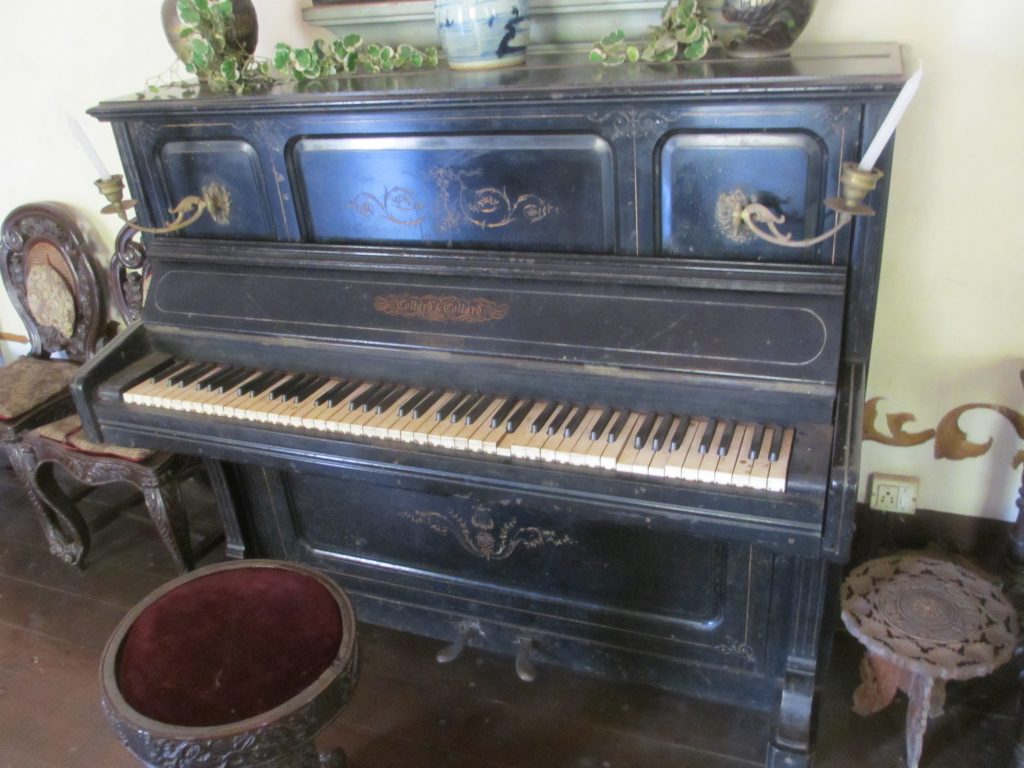
A room upstairs has a walkin ladies’ wardrobe that houses a secret. The entire floor, 8X6, lifts up to reveal stairs that lead down to a passage connecting to the river. More holes in the walls at every change of direction The rooms above are spacious, well lit and cool on the first floor where living takes place.
He is keen to know about funding for cultural heritage restoration from UK. I explain, overseas development don’t really do crumbling mansions – not that I use that term. He is genuinely informative and chatty unlike the previous who had obviously lost faith in the whole process. Shades of Gormenghast.
A walk back into the village expresses its status by the absence of any transport other than a bus. It had been the capitol of the region before the Portuguese decided it was too disease ridden and far from the coast. A bus appears and a kindly uncle hops on to show me the way. I can use Google maps to track our route as we go eastward away from my goal of Quepem. Life here is invariably circuitous. He gets off, assuring me the ticket man will point me in the right direction. He does so when we reach a town with an actual bus station. Tuktuk ride ensues to the door of Palace do daeo. Built in the late 18th century it has been carefully restored by the current owner Ruben who gives a whirlwind 5 minute tour but an open invitation to then look around on my own. The deao was not a Dean but virtually second in command to the Bishop. He came from a wealthy family and could build an entire village from scratch at Quepem for the avowed rehabilitation of sinners.
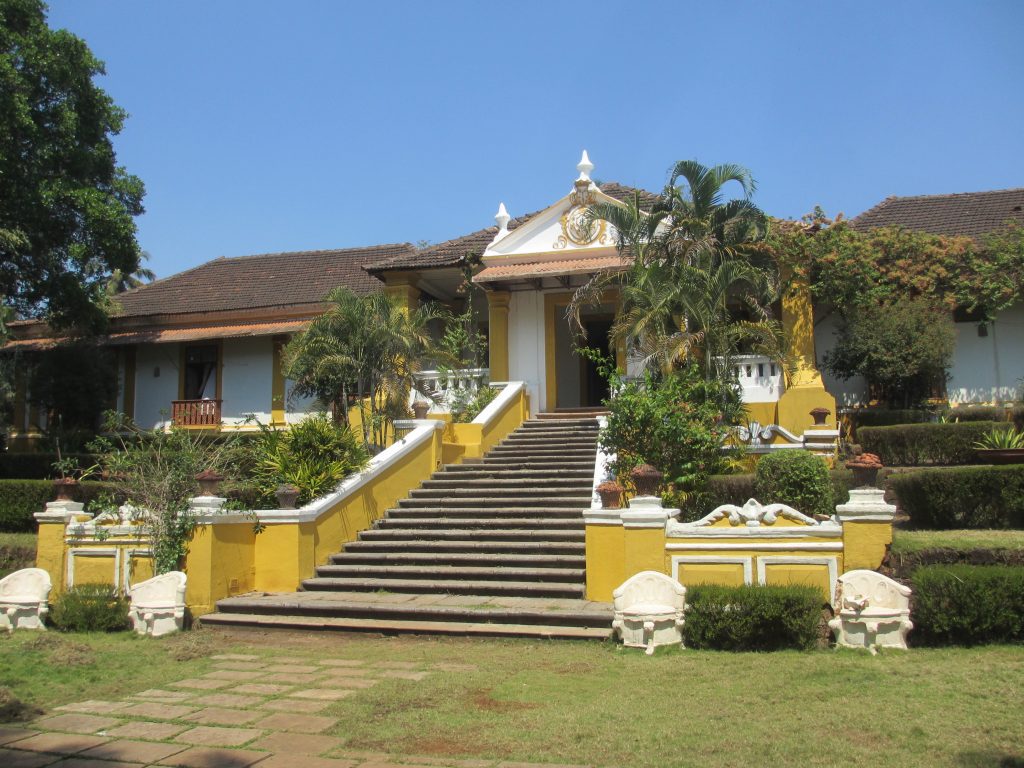
Ruben had spent three years in Portugal researching plans and drawings in order to carry out a restoration that took only two years.
A stroll into town immediately yields a bus to Margao where I soon arrive in time to miss the train to Majorda. An initial of a taxi ride on a motorbike is refused in face of a helmet with no strap and a tuktuk soon has me back in Utorda.
Game three tomorrow on a good ground
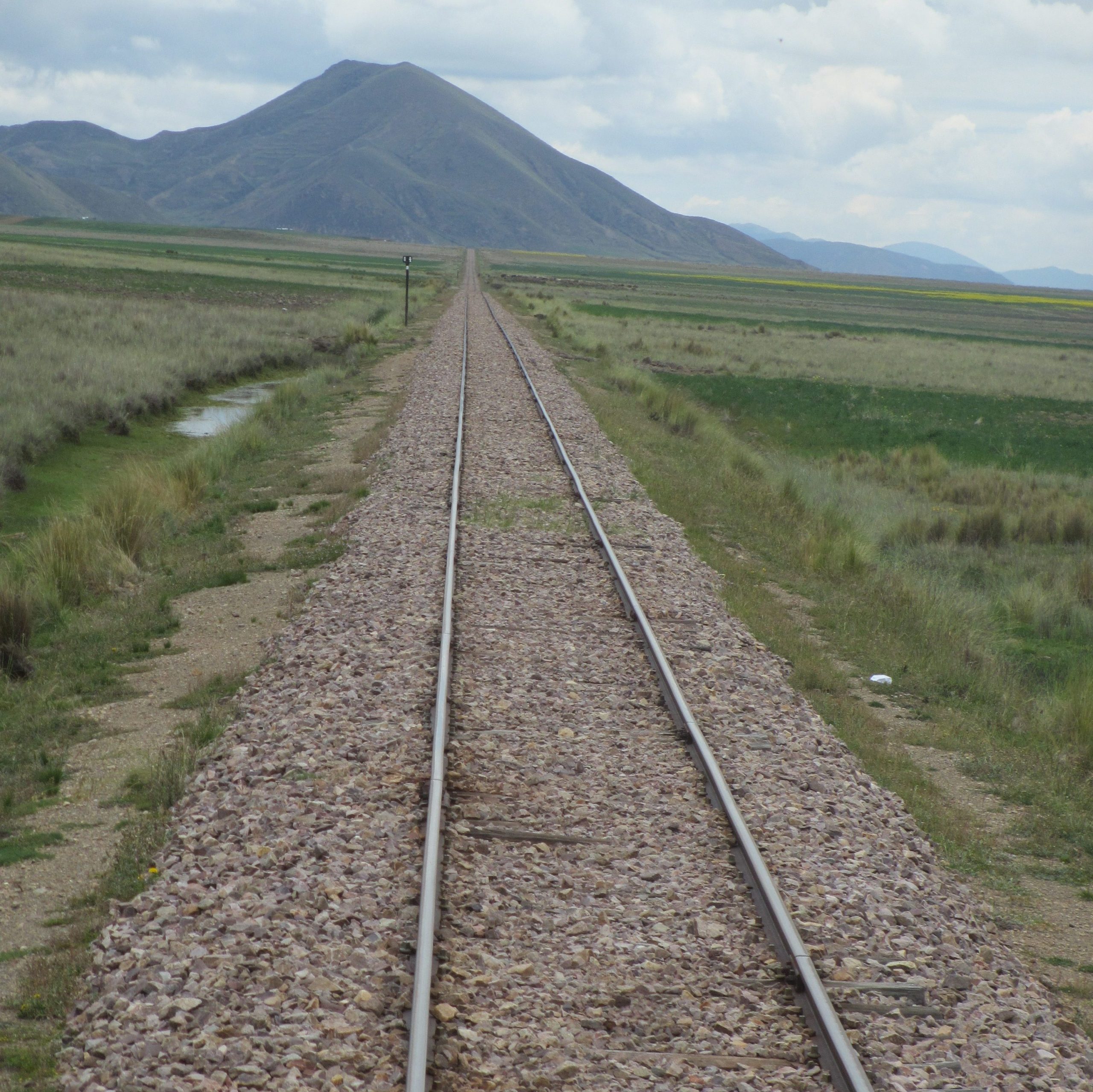
Leave a comment